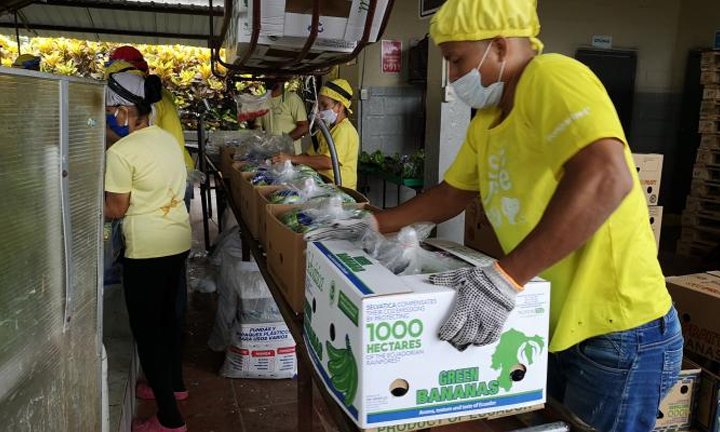SOURCE: Liza Sambrano, Expreso
TRANSLATION: Freshplaza
The presidents of Ecuador and the People’s Republic of China, Guillermo Lasso and Xi Jinping, reached an agreement in the Memorandum of Understanding for the signing of a Free Trade Agreement. This trade agreement would be very important for the Ecuadorian banana sector as it would help curve the strong decrease in Ecuadorian banana exports there’s been in recent years, stated Jose Antonio Hidalgo, executive director of the Ecuadorian Banana Exporters Association (AEBE).
According to data released by Trademap, until 2019, Ecuador was China’s second-biggest supplier of bananas behind the Philippines; in 2019, twenty-five out of every 100 tons of bananas that entered the country came from Ecuador, Hidalgo highlighted. However, in 2021 Ecuador positioned itself as the fourth supplier, ahead of Vietnam and Cambodia. In 2021, the presence of the Ecuadorian banana reached a little more than a tenth, losing more than 50% of its presence in twenty-four months.
Ecuadorian banana faces stiff competition from Vietnam, Cambodia, and Laos (in order of importance). In 2019, these three countries accounted for 20% of imported bananas, but by the end of 2021, they accounted for more than 40% because they are close to China, send their bananas by land, and because there is Chinese investment in those countries, especially in Cambodia and Laos.
In addition, with the current 10% tariff, Ecuadorian bananas are 5 cents more expensive than the banana from the three aforementioned countries when entering China. “So signing an agreement would put us on equal tariff terms and, with the quality we have, we can recover the share we lost in the years of the pandemic. China’s annual banana import volume is recovering,” Hidalgo said.
Without the agreement, he said, our market share will decrease more. The agreement would consolidate the presence of Ecuadorian bananas in that market. The Chinese economy is becoming more urbanized, so the need for consumption in the cities will increase, the economy will grow and they will demand products of higher quality. The Ecuadorian banana must take advantage of this scenario to satisfy that unsatisfied need, he added.
It’s worth remembering that China’s food balance is in deficit. Fruit consumption per inhabitant stands at 60 kilograms and 60% of the fruit they eat is imported. In addition, there has been an increase in population since married couples were allowed to have more than one child since 2014.

